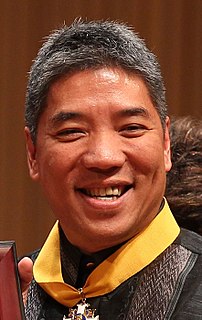A Quote by Ambeth R. Ocampo
Rizal learned the right ideas at the wrong time, and for this he was shot.
Quote Topics
Related Quotes
(...) being right all the time acquires a huge importance in education, and there is this terror of being wrong. The ego is so tied to being right that later on in life you are reluctant to accept that you are ever wrong, because you are defending not the idea but your self-esteem. (...) this terror of being wrong means that people have enormous difficulties in changing ideas.
I've learned when to get out. I've never wasted too much time with the wrong person, and that's one thing I'm proud of. The longer you're with the wrong person, you could be completely overlooking or not having the chance to meet the right person. And if it doesn't feel right, it isn't right. How do you know if something feels right? I think the great defining factor for me is whether I want more. When they drive away, do I wish they would turn around at the end of the street and come back? Or am I fine that they're going home?
I was born with the wrong sign
In the wrong house
With the wrong ascendancy
I took the wrong road
That led to
The wrong tendencies
I was in the wrong place
At the wrong time
For the wrong reason
And the wrong rhyme
On the wrong day
Of the wrong week
Used the wrong method
With the wrong technique
Wrong
Wrong.
If I'm ever working on a set and anyone talks about a master shot, I say there is no master shot. Before I even went to film school, I learned about movies by being in a British feature film, where everything was shot master shot, mid-shot, close-up. But I reject the idea of a master shot. You don't shoot everything mechanically; you find imaginative ways that serve the action.
Most people believe they know how they themselves think, how others think too, and even how institutions evolve. But they are wrong. Their understanding is based on folk psychology, the grasp of human nature by common sense ¾ defined (by Einstein) as everything learned to the age of 18 ¾ shot through with misconceptions, and only slightly advanced over ideas employed by the Greek philosophers







































